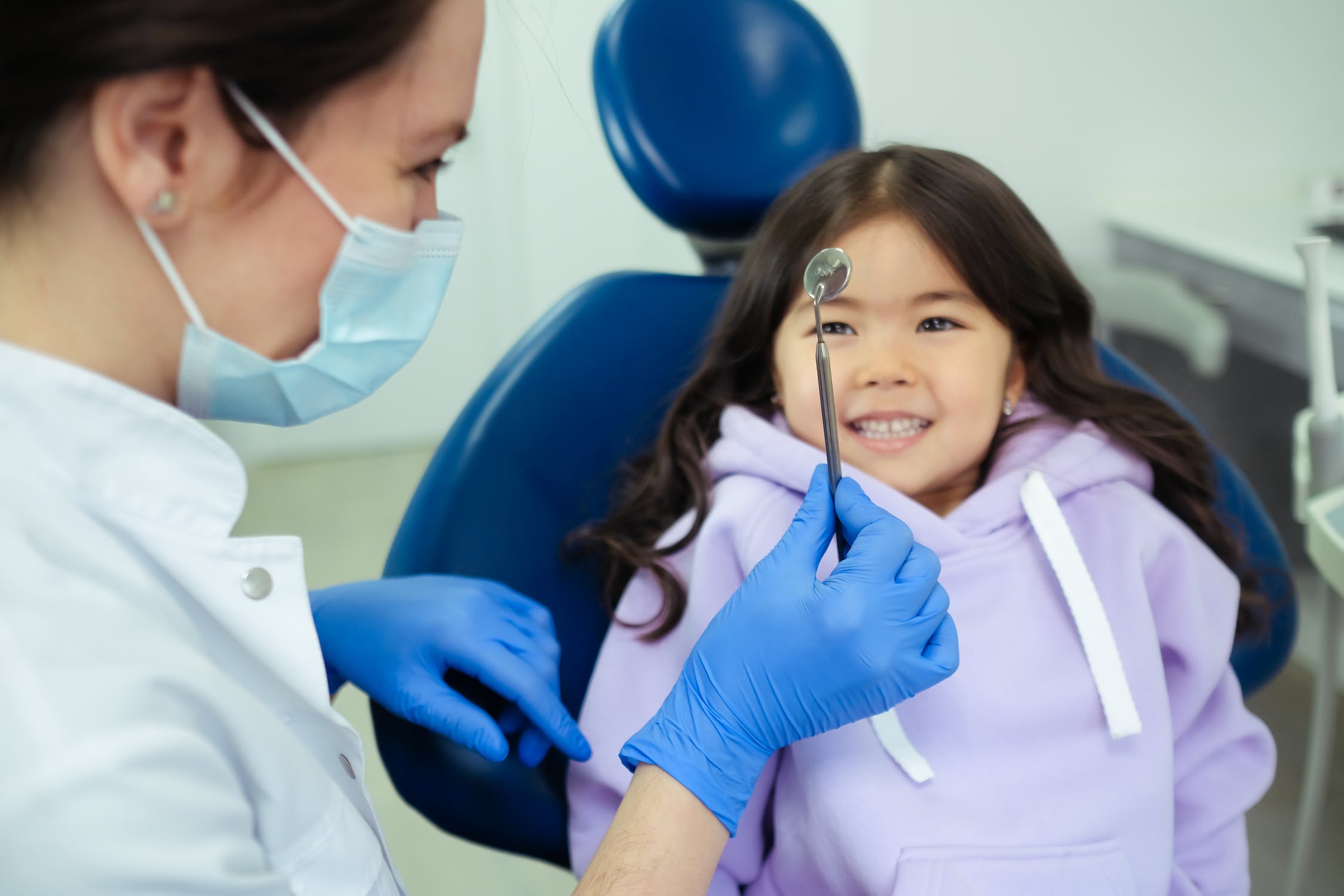It can be overwhelming to keep track of all of your child’s medical needs. Dental care in particular can be confusing, especially since many pediatricians don’t talk to parents about when they should go see a dentist. Children are at higher risk than adults for a number of dental issues, which is why it’s essential that you take care of your child’s oral health. Many dental conditions often have more expensive complications if left untreated, so it’s always best to go to the dentist’s office at the first sign of trouble. If you’re wondering when to take your child to the dentist for the first time, keep reading to find out at what age you should make an appointment.
When should you first take your child to the dentist?

You might be surprised to learn you should schedule a dental visit for your child before they’ve even turned a year old. A child should actually go for their first dental visit no later than their first birthday. If teeth become visible prior to that, then you should see a dentist six months after the appearance of the first tooth.
Many parents say they didn’t receive guidance for dental care from their child’s pediatrician until after their child’s first birthday. One in six parents believed that dental visits shouldn’t begin until the child is 4 or older. Not only that, but fewer than half of parents whose family physicians did advise them believed that children need to visit the dentist at 12 months of age or younger.
For younger kids, especially those who are anxious about oral health, look for a physician like this dentist in Sydney, CBD. An emphasis on being welcoming to new patients and passionate about health literacy is important. Practices that work with families and value getting to know their patients are better suited for handling your child’s dental care.
What are some common pediatric dental problems?

Children are susceptible to many of the same dental problems as adults, though there are some problems that are more common in younger patients. Children are often less thorough when brushing and flossing, which puts them at greater risk of developing tooth decay and cavities. Dental emergencies resulting from activities like playing team sports or bike riding can also be more common in younger people.
When dealing with infants, it’s important to understand that how you feed your baby will affect their oral health. Breastfeeding and formula feeding can impact your child’s teeth in ways you may not have realized. Recent studies have shown that babies who are exclusively breastfed for the first six months of life have a lower likelihood of developing tooth alignment issues like overbites in the future.
Parents who have the ability to breastfeed should do so, considering the oral health benefits. If you do plan on breastfeeding, it’s a good idea to invest in a pumping bra. A hands-free pumping bra can be a game-changer for busy parents by giving them the ability to do other things during a pump session. A pumping bra also provides additional support and the kind of flexibility and adjustability that a new parent needs from an everyday bra. The pumping bras from Simple Wishes work with any electric breast pump and are designed to provide a perfect fit for bodies of any size.
Though many parents believe their children can wait years before visiting a dentist, you should actually make an appointment by the time they have their first birthday. Dental issues can develop early, and you don’t want to put your child at risk for more serious complications by ignoring any potential warning signs of decay or disease. While many children have anxiety about going to the dentist, it’s important that you instill good dental habits in them from an early age. Preventive care and proper hygiene go a long way when it comes to keeping your teeth healthy and strong.






